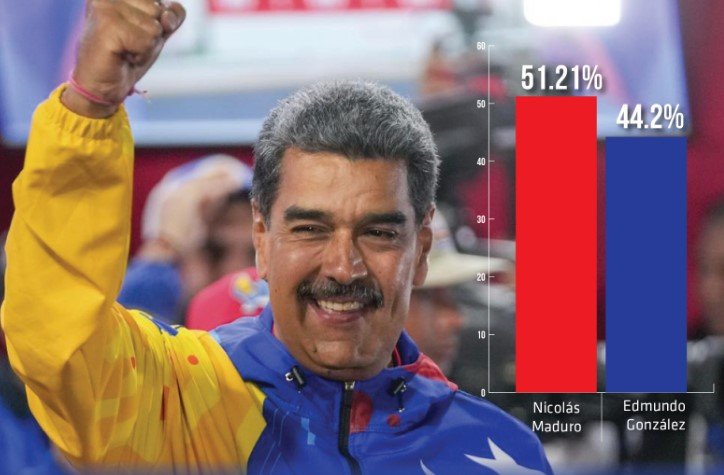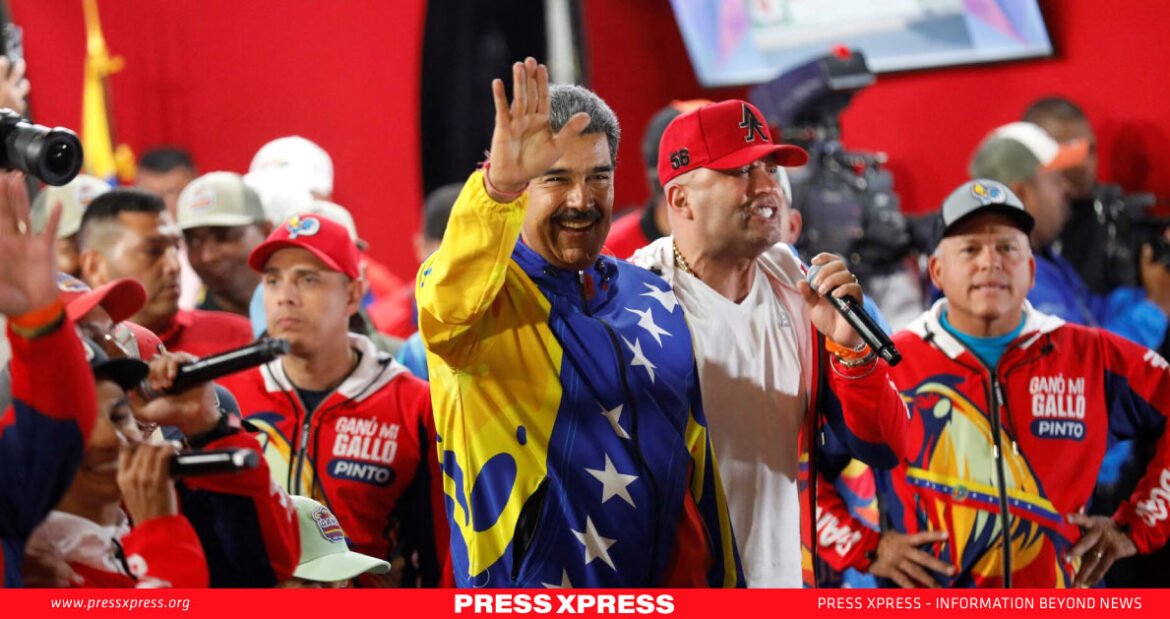- Venezuela held a presidential election on July 28, 2024
- Incumbent Nicolás Maduro sought his third term
- The election occurred amid a severe economic crisis and mass emigration
- The election process was marred by accusations of irregularities
On July 28, 2024, Venezuelans went to the polls in a presidential election that could reshape the country’s future and influence regional politics. The contest pitted incumbent Nicolás Maduro, seeking his third term, against opposition candidate Edmundo González Urrutia. This election took place against a backdrop of severe economic crisis, mass emigration, and international sanctions that have isolated Venezuela on the global stage.
You Can Also Read: GLOBAL LEADERS PREPARE FOR POTENTIAL TRUMP RETURN
The stakes were extraordinarily high. After more than a decade of Maduro’s rule, which began following the death of Hugo Chávez in 2013, Venezuela has experienced what economists describe as one of the worst peacetime economic collapses in modern history.
The opposition, long fragmented and demoralized, managed to unite behind González, a former diplomat who stepped in after the popular María Corina Machado was barred from running. Their campaign promised to restore democracy, rebuild the economy, and encourage the return of Venezuelan expatriates.
However, the election process was marred by accusations of irregularities, including the detention of opposition staff and restrictions on international observers. The conflicting claims of victory that emerged in the aftermath of the vote have thrust Venezuela into a period of uncertainty, with potential repercussions for the entire Latin American region and beyond.

Opposition Claims and Alternative Vote Counts
María Corina Machado, a key opposition figure, declared that their candidate, Edmundo González Urrutia, had secured 70% of the vote, a stark contrast to the National Electoral Council’s (CNE) announcement of 44%. This claim was based on the opposition’s internal tallies and exit polls conducted by independent organizations.
One such poll, conducted by Edison Research, predicted González would win 65% of the vote compared to Maduro’s 31%. Another local firm, Meganalisis, forecast a similar outcome with 65% for González and 14% for Maduro. These alternative counts fueled the opposition’s assertion that the election had been manipulated.
The opposition stated they had copies of about 40% of voting records, which they claimed supported their victory narrative. They also reported that their top official assigned to witness the national vote count was barred from the process and that opposition observers were denied access to several polling stations.

International Reactions and Implications
The announcement of Maduro’s victory sparked a wave of international responses, with stark divisions between Western democracies and Venezuela’s allies. U.S. Secretary of State Antony Blinken expressed ‘serious concerns’ about the results, stating they might not reflect the will of Venezuelan voters. He called for a transparent publication of vote tabulations, echoing concerns about the election’s integrity.
Several Latin American nations voiced skepticism or outright rejection of the results. Chile’s President Gabriel Boric described the outcome as ‘hard to believe,’ while Uruguay’s President Luis Lacalle Pou called the vote count ‘flawed.’ Costa Rica and Peru went further, labeling the election fraudulent. These reactions highlight the regional implications of Venezuela’s political situation and the potential for increased diplomatic tensions.
In contrast, Venezuela’s allies offered congratulations to Maduro. Cuba’s President Miguel Diaz-Canel praised the victory as a defeat of ‘pro-imperialist opposition’, while Bolivia and Honduras also expressed support. China’s foreign ministry extended congratulations, underscoring the geopolitical dimensions of the election outcome.
The European Union and several member states joined in voicing concerns about the vote’s transparency. This international skepticism could lead to continued or increased sanctions against Venezuela, further isolating the country economically and diplomatically.
The Venezuelan Crisis: Context and Consequences
Venezuela’s 2024 election unfolded against a backdrop of profound economic and social turmoil. Since Maduro assumed power in 2013, the country has experienced an economic collapse of historic proportions. Between 2012 and 2020, Venezuela’s GDP contracted by 71%, a decline unmatched in peacetime.
This economic freefall triggered a humanitarian crisis. Hyperinflation, which peaked at over 130,000% in 2018, decimated purchasing power. A basket of basic staples, sufficient to feed a family of four for a month, costs an estimated $385, while many Venezuelans earn under $200 monthly.
The crisis prompted a mass exodus, with approximately 7.7 million Venezuelans—nearly a third of the population—leaving the country. This migration has strained resources in neighboring countries and altered regional demographics.
Venezuela’s oil industry, once the backbone of its economy, crumbled under mismanagement and sanctions. The country, which possesses the world’s largest proven oil reserves, saw its production plummet, further exacerbating economic woes.
International sanctions, imposed in response to perceived democratic backsliding and human rights violations, compounded these issues. While intended to pressure the Maduro government, these measures also deepened the economic crisis.
The 2024 election occurred as Venezuela showed signs of marginal economic improvement, with the IMF forecasting 4% growth. However, this modest recovery has yet to translate into widespread relief for a population grappling with years of hardship and deprivation.
The 2024 Venezuelan presidential election marks a critical juncture in the country’s political trajectory. The stark contrast between official results and opposition claims underscores the deep divisions within Venezuelan society and the challenges to democratic processes.


